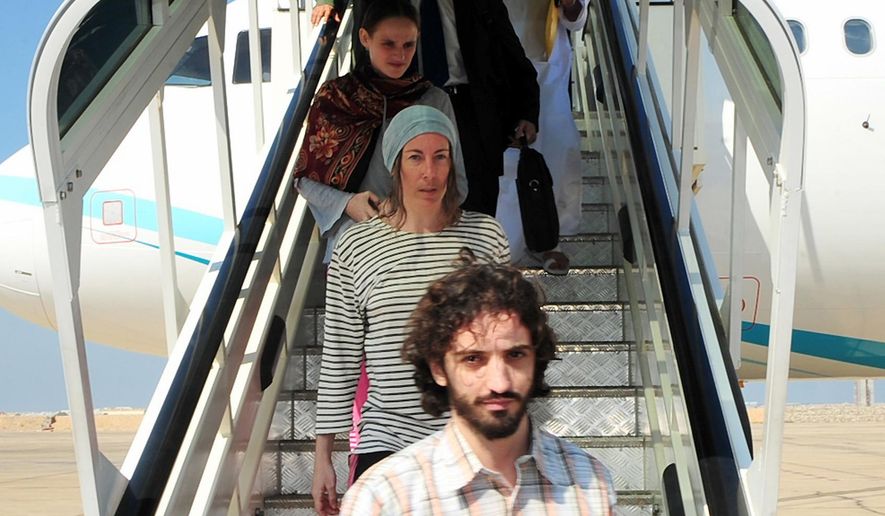Congress tucked a sweetheart deal for America’s vacation resorts and other seasonal employers into the massive spending bill announced Monday, paving the way for the administration to more than double the number of temporary visas to foreign workers this year and “flooding the labor force” with cheap competition for jobs.
Lawmakers also agreed to make the first down payment on President Trump’s deportation force but stymied most of the rest of his immigration plans in the 2017 spending bill, including denying him any money to begin building his signature border wall.
Those moves had been telegraphed before, but the boost in H-2B visas was a surprise to analysts and drew immediate condemnation from Trump backers, who said Congress was undermining the president’s vow to protect American workers from foreign competitors.
NumbersUSA said the provision would let the Trump administration raise the cap from 66,000 foreign workers to more than 135,000.
“It is a sellout [of] the American worker,” said Bob Dane, executive director of the Federation for American Immigration Reform.
The top senators on the Judiciary Committee said the bill breaks the rules of Congress. Sen. Chuck Grassley, Iowa Republican, and Sen. Dianne Feinstein, California Democrat, said their committee is supposed to be in charge of immigration policy.
“We understand the needs of employers who rely on seasonal H-2B workers if the American workforce can’t meet the demand, but we are also aware of the potential side effects of flooding the labor force with more temporary foreign workers, including depressed wages for all workers in seasonal jobs,” the two senators said.
They asked their colleagues to delete the provision from the bill, which was released early Monday and must be voted on this week.
All told, the bill details more than $1 trillion in spending for fiscal year 2017, which runs through Sept. 30. At about 3,000 pages, the bill and its accompanying reports cover most of the basic operations of government.
But immigration proved to be an outsized sticking point. Democrats were intent on using the bill to prove they could deny Mr. Trump any financial assistance for his crackdown plans.
Mr. Trump had gone into the negotiations asking for a $1 billion down payment on his proposed border wall and for early money for his boost in Border Patrol and interior enforcement agents, while congressional Republicans sought to punish sanctuary cities.
The president got funding for 100 deportation officers, Republicans said, but no wall money or sanctions on sanctuaries.
Congress did include money to maintain an average of 39,000 detention beds a day. As of April 22, nearly seven months into the fiscal year, the Homeland Security Department was running ahead of that target, averaging 40,160 people per night.
That is a large increase over last year, when the average population was 34,376.
Jessica Vaughan, policy studies director at the Center for Immigration Studies, said U.S. Immigration and Customs Enforcement was getting $379 million more than President Obama had budgeted, giving the new administration an opening.
“That is going to be very helpful to the Trump administration in carrying out the enforcement agenda and the executive orders in particular,” she said.
Immigrant rights advocates balked at the implications of the increase.
“I will probably not be able to vote for another additional $1.2 billion to deport more immigrants,” said Rep. Luis V. Gutierrez, Illinois Democrat. “I cannot look families in my district in the eye and say I support more deportations, because I do not.”
Frank Sharry, executive director at America’s Voice, a leading immigrant advocacy group, said it could have been worse.
“The bottom line is that Republicans got more money, Democrats limited the amount and limited the damage that money will do,” he said. “What it means to us is that the stage is set for a much bigger and more consequential battle over the 2018 budget.”
Senate Minority Leader Charles E. Schumer, New York Democrat, said Mr. Trump won’t have any better luck getting money for a border wall the next go-around. He said seven or eight Republican senators approached him to say they, too, opposed the border wall.
Mr. Schumer said lawmakers have concluded that a wall wouldn’t do much to combat the flow of illegal drugs, which he said are increasingly being flown over, boated around or tunneled underneath the border.
A report Monday by the Government Accountability Office said authorities discovered 67 smuggling tunnels under the U.S.-Mexico border from 2011 to 2016. Almost all of the tunnels classified as sophisticated operations that had interconnected routes capable of shipping significant amounts of drugs.
The rate of tunnel detections has dropped during that time, though officials did record a spike last year, the GAO said. Smuggling attempts by ultralight aircraft and by personal boats have also declined in the past few years, the investigators said.
• Stephen Dinan can be reached at sdinan@washingtontimes.com.




Please read our comment policy before commenting.